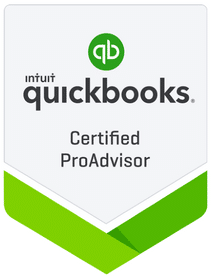- Patrick Roney
- (877) 503-8607
Follow Us :
Follow Us :
Proledge
August 6, 2010

Doing QuickBooks backups is like brushing teeth. It’s a drag. You know you should do it, but it feels harmless to skip it some times. “Come on! I won’t get a cavity just because I don’t brush tonight?” “QuickBooks won’t crash today, right?” And you’re absolutely correct. You don’t need to be obsessive about it. You just need to understand the risk/reward tradeoffs… at least when it comes to QuickBooks. I’ll let your dentist tell you about your teeth.
At ProLedge, our bookkeepers are trained to create a backup of the QuickBooks file each time they start a work session on a client’s file. The reason is specific to our profession though. Most likely, the person who worked on the file before us was the client. The last thing we want to see happen is have a problem during the bookkeeper’s work session, have to restore an older backup and lose the work that the client did just before our session. So, we always want to create a snapshot of the books before we start working on them. If the bookkeeper has a long work session and we want to make sure that this work doesn’t get lost, we do a second backup at the end of the session, but the backup at the beginning of the session is the important one to us.
For someone other than a professional bookkeeper, it’s the opposite. It’s the backup at the end of a session that matters. You don’t need to backup every time, but if you spent a couple of hours in your books, it might be wise to create a backup just to safeguard that work.
There are 3 key reasons for doing backups:
The 3rd reason is often overlooked, but it is a very important one. A good example is when you import data into QuickBooks through online banking or any 3rd party application. It takes 10 seconds to import the data and, if something goes wrong during the import (and it often does), it can take hours to clean up the mess. This is a golden rule: “Create a backup before you import any data into QuickBooks”.
Here are some other guidelines. Increase the frequency of your backups:
One last tip: “Restoring a backup file is incredibly easy”. Don’t assume that backups are just for disaster situations. It is often so much faster to do a quick restore rather than to have to reverse engineer how a problem happened. Once you get confortable that you have a safety net, it gives you peace of mind to do your regular QuickBooks work. It even allows you to become a bit more fearless and try new things in QuickBooks!


Fill out the form below to sign up to our Blog Newsletter and we’ll drop you a line when new articles come up.
Bookkeepers.
Professional. Affordable.
ProLedge is a bookkeeping services firm.
Copyright © 2024 All rights reserved.
Hello. Can we help you?